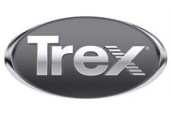On top of these day-to-day and season-to-season ins and outs of city life, there also are unique situations that crop up. For example, in post–September 11 New York, trucks going through tunnels, across bridges, and near certain buildings may be subject to searches. Strober drivers face even greater scrutiny when supplying projects like prisons, hospitals, and nuclear power plants, Scanlon says, and must plan ahead for requirements such as extra identification, locked gas tanks, and vehicle information.
Security also comes into play when the president comes to town. When the commander-in-chief lands at the heliport across the river, secret service agents canvass and secure the pier and areas around the yard. And he’s not the only celebrity to be spotted in the vicinity: The urban setting and dramatic backdrop make the roads and areas around and near the yard a popular spot for movie and television crews, whose filming sometimes can require patience and compromise.
Right Place, Right Time Getting materials to customers on time is only half the battle. Once at the project site (which may consist of an infill building on a one-way street with cars parked on both sides and a tangle of power lines and tree branches out front) Strober’s drivers must determine where to safely and legally park and unload materials.
Vital to the process are Strober salespeople, who spend 80 percent of their time in the field and typically will scope out sites beforehand. “Our [Strober] salesman will go visit these jobsites,” says Helen Halkias, office manager for Dellwood General Contracting in Brooklyn, which does commercial historical preservation projects and uses Strober for 90 percent of its materials. “… He will go and see where the building is, what the side streets are, what the parking is. He’ll let his people know what to send, when to get there, which street to go down.”
Another competitive advantage is the yard’s large, diverse fleet—from flat-beds to boom trucks—that accommodate a variety of deliveries at one time and can place supplies precisely where needed. The ability to hoist concrete and other products as high as nine stories saves customers the time of hauling materials up construction elevators, which can be tied up by other trades.
Mitch Benov relies on Strober both for the convenience the dedicated fleet provides and the yard’s dependability. As project manager for East Hills Metro, a drywall contractor in Massapequa, N.Y., Benov buys 90 percent of his supplies from Strober, dealing primarily with the nearby Farmingdale location but receiving some deliveries from the Brooklyn yard. “In the past we’ve had some bad experiences with other suppliers, telling us ‘Yes, we’ll be there at 7:00 in the morning,’ and [instead] the truck rolls in at 11,” he recalls. “I never have that problem with Strober. … If I have a 7:00 delivery, they’re set up at 6:30.”
Delivering on those promises requires adapting, for sure, but above all it relies on strong relationships with customers, employees, and vendors, says Scanlon. “Most of our customers are professional, so they understand that things happen,” he says. “… We always want to give them something realistic. We want to be able to do what we say we are going to do. It’s very important to us, it’s very important to our reputation.”
But there seem to be few obstacles too challenging for the can-do attitude of the Strober team. The slogan painted on the front of the yard’s truck cabs says it all: “Yes, we can.”
Vital Statistics Company: The Strober Organization
Year founded: 1912



